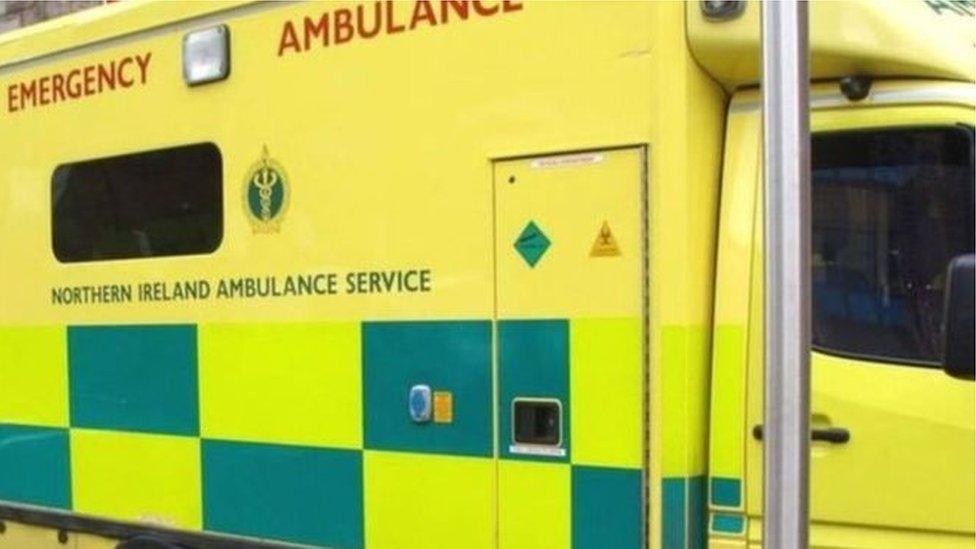Ambulance: Mum 'on edge' after boy's wait for urgent help
- Published
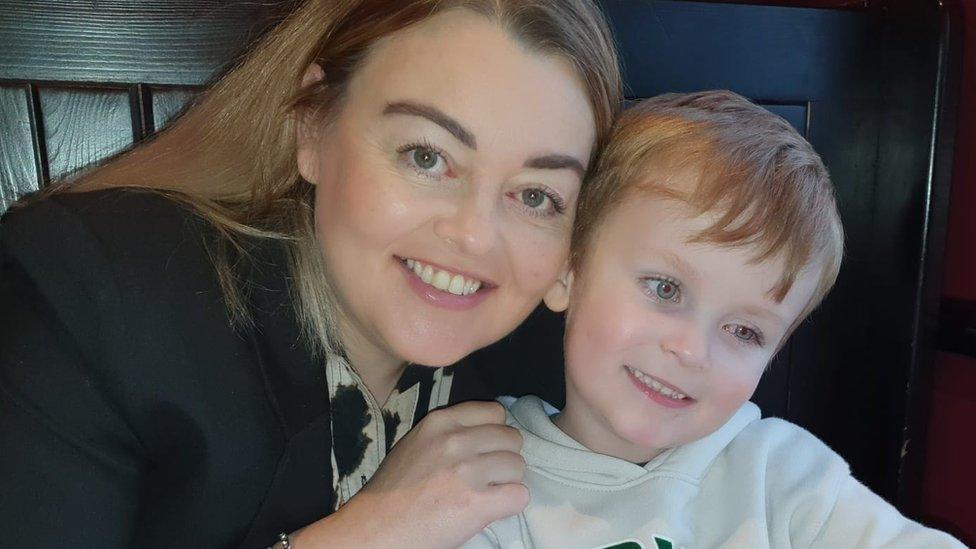
Elizabeth felt there was "no way back" for Oscar while they waited for the ambulance to arrive
The mother of a four-year-old boy has said her family is "on edge" after an ambulance took more than 25 minutes to arrive when he had a seizure.
Oscar's mother Elizabeth told BBC Radio Ulster's The Nolan Show that she could not stop panicking as she waited.
Her husband was asked by the 999 call handler to get a defibrillator while they waited for paramedics to arrive.
The Ambulance Service has apologised and said the response time did not meet its target for the most urgent calls.
The family told their story after the Ambulance Service said it was dealing with the "highest level of pressure" it had ever experienced.
Elizabeth said she was fearful that an ambulance would not show up in time if her son had another seizure.
She said that during the incident at their home in County Down last month Oscar initially appeared unresponsive but then started to have a seizure.
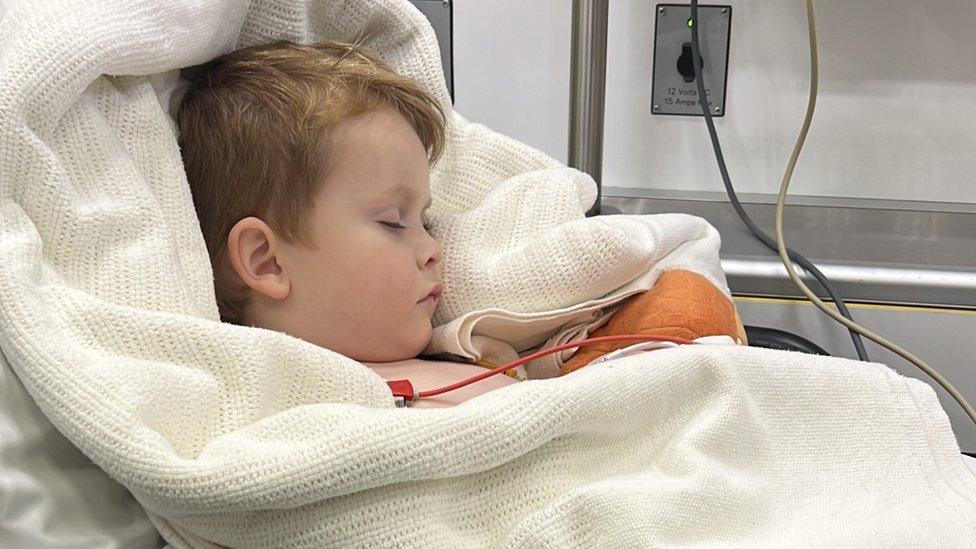
Elizabeth says Oscar had never had a seizure before the incident at their home last month
"Every minute [waiting for the ambulance] felt almost like 10 minutes," she said.
"I thought there was no way back from this for the length of time we waited for someone to come and [I was] just panicking the whole time."
'Highest level of pressure'
The Ambulance Service said paramedics arrived 26 minutes after it received the call.
It said the initial information it received about Oscar's condition resulted in the call being deemed "category two", meaning the target response time was 18 minutes.
But the call was upgraded to "category one", meaning it had greater priority.
The Ambulance Service said the target response time for "category one" calls was eight minutes.
Oscar's condition has since stabilised and he has not had a seizure since that incident but is waiting to see a consultant.
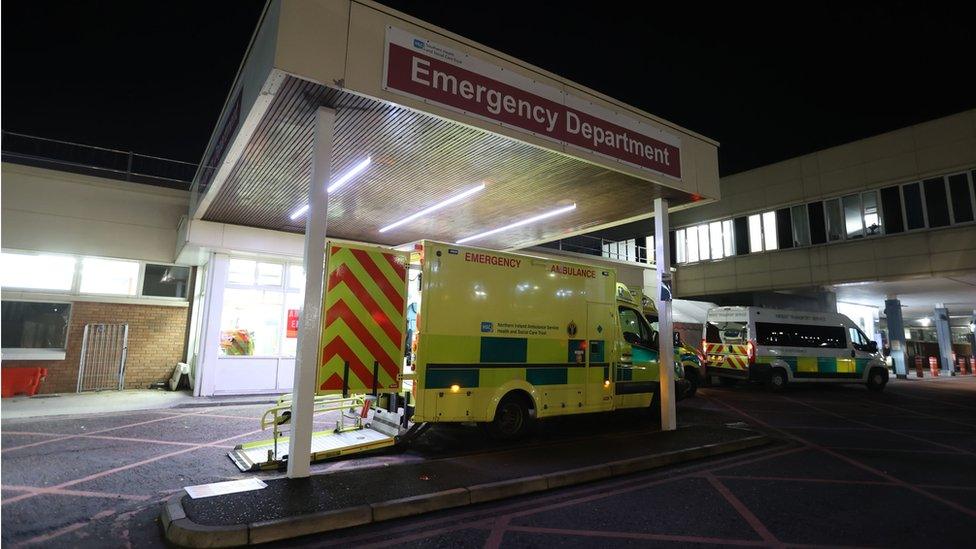
The Ambulance Service apologised to the family as the response time did not meet its targets
Speaking on Wednesday, the service's assistant director Mark Cochrane said that patients were being put at risk due to the level of demand within the health service in Northern Ireland.
"We have had patients who have waited many hours in excess of the performance targets," he said.
'Tragic and heart-breaking'
One problem is that some ambulance crews cannot transfer their patients to emergency departments immediately on arrival because hospitals are so busy.
Therefore the patients have to wait in the ambulances while they are parked outside hospitals until an appropriate space becomes available for them inside the building.
The knock-on effect is that fewer ambulances are available to deal with urgent calls.
Dr Sean McGovern, an emergency medicine consultant at the Ulster Hospital in Dundonald, said "avoidable harm" was happening.
Emergency departments were in a "very tragic, very heart-breaking situation", he told BBC Radio Ulster's Good Morning Ulster programme.
He said that in 30 years of working in emergency medicine he had never seen the situation as bad as it was now.
Former Health and Social Care Board chief executive John Compton said the health service was in "difficult times".
He argued that the lack of major change and modernisation within the service and the lack of political leadership at Stormont had exacerbated the problems.
- Published21 December 2022
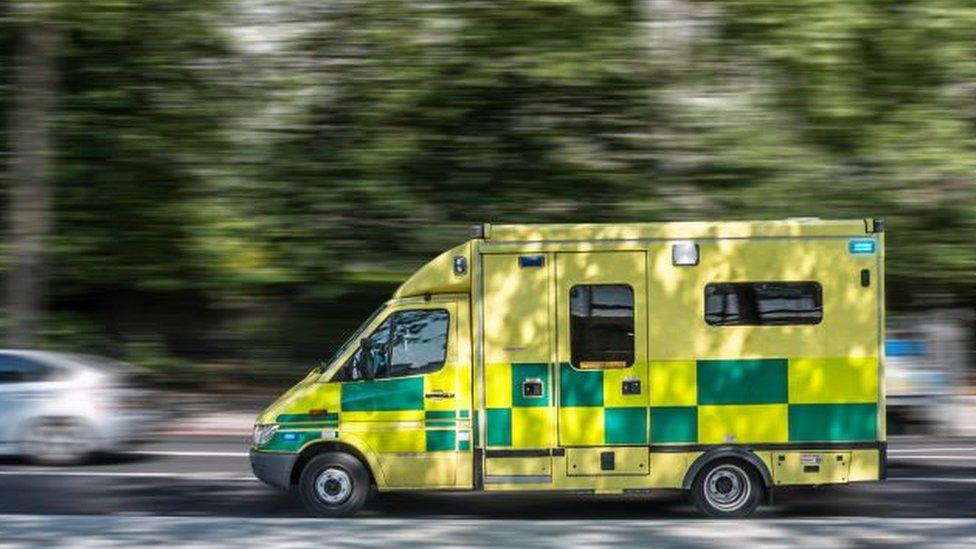
- Published20 December 2022
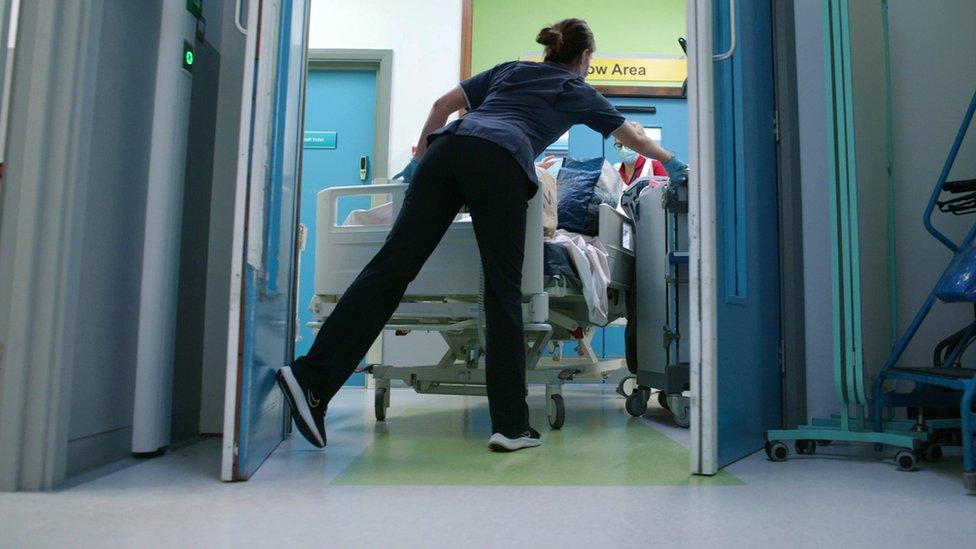
- Published19 December 2022
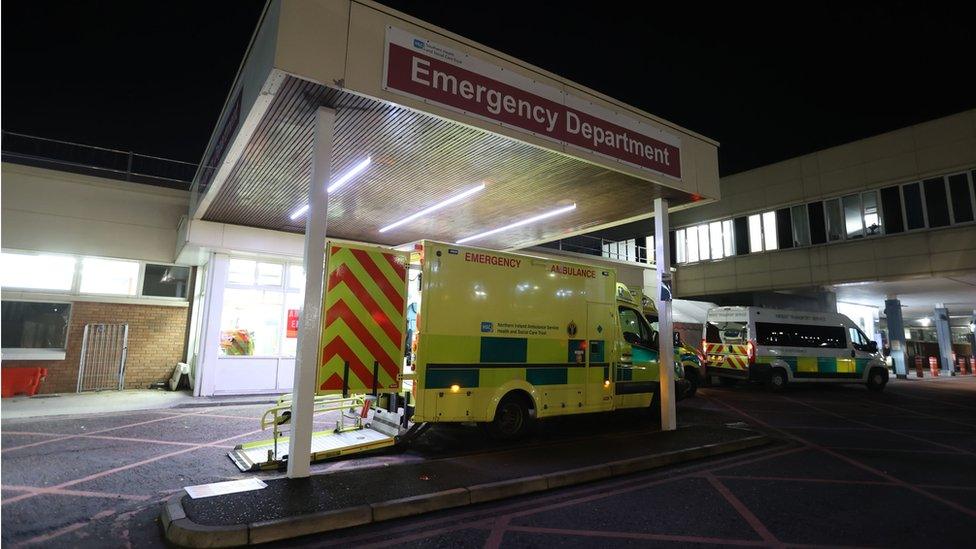
- Published6 April 2022
